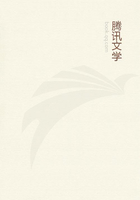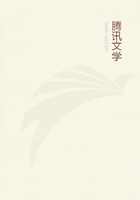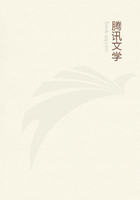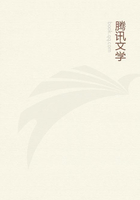Prop. XXIV. The more we understand particular things, the more do we understand God.
Proof.- This is evident from I:xxv.Coroll.
Prop. XXV. The highest endeavour of the mind, and the highest virtue is to understand things by the third kind of knowledge.
Proof.- The third kind of knowledge proceeds from an adequate idea of certain attributes of God to an adequate knowledge of the essence of things (see its definition III:xl.Note.ii.); and, in proportion as we understand things more in this way, we better understand God (by the last Prop.); therefore (IV:xxviii.) the highest virtue of the mind, that is IV:Def.viii.) the power, or nature, or (III:vii.) highest endeavour of the mind, is to understand things by the third kind of knowledge. Q.E.D.
Prop. XXVI. In proportion as the mind is more capable of understanding things by the third kind of knowledge, it desires more to understand things by that kind.
Proof.- This is evident. For, in so far as we conceive the mind to be capable of conceiving things by this kind of knowledge, we, to that extent, conceive it as determined thus to conceive things; and consequently (Def. of the Emotions:i.), the mind desires so to do, in proportion as it is more capable thereof. Q.E.D.
Prop. XXVII. From this third kind of knowledge arises the highest possible mental acquiescence.
Proof.- The highest virtue of the mind is to know God (IV:xxviii.), or to understand things by the third kind of knowledge (V:xxv.), and this virtue is greater in proportion as the mind knows things more by the said kind of knowledge (V:xxiv.): consequently, he who knows things by this kind of knowledge passes to the summit of human perfection, and is therefore (Def. of the Emotions:ii.) affected by the highest pleasure, such pleasure being accompanied by the idea of himself and his own virtue; thus (Def. of the Emotions:xxv.), from this kind of knowledge arises the highest possible acquiescence. Q.E.D.
Prop. XXVIII. The endeavour or desire to know things by the third kind of knowledge cannot arise from the first, but from the second kind of knowledge.
Proof.- This proposition is self-evident. For whatsoever we understand clearly and distinct we understand either through itself, or through that which is conceived through itself; that is, ideas which are clear and distinct in us, or which are referred to the third kind of knowledge (II:xl.Note.ii.) cannot follow from ideas that are fragmentary, and confused, and are referred to knowledge of the first kind, but must follow from adequate ideas, or ideas of the second and third kind of knowledge; therefore (Def. of the Emotions:i.), the desire of knowing things by the third kind of knowledge cannot arise from the first, but from the second kind. Q.E.D.
Prop. XXIX. Whatsoever the mind understands under the form of eternity, it does not understand by virtue of conceiving the present actual existence of the body, but by virtue of conceiving the essence of the body under the form of eternity.
Proof.- In so far as the mind conceives the present existence of its body, it to that extent conceives duration which can be determined by time, and to that extent only, has it the power of conceiving things in relation to time (V:xxi., II:xxvi.). But eternity cannot be explained in terms of duration (I:Def.viii. and explanation). Therefore to this extent the mind has not the power of conceiving things under the form of eternity, but it possesses such power, because it is of the nature of reason to conceive things under the form of eternity (II:xliv.Coroll.ii.), and also because it is of the nature of the mind to conceive the essence of the body under the form of eternity (V:xxiii.), for besides these two there is nothing which belongs to the essence of mind (II:xiii.). Therefore this power of conceiving things under the form of eternity only belongs to the mind in virtue of the mind's conceiving the essence of the body under the form of eternity. Q.E.D.
Note.- Things are conceived by us as actual in two ways; either as existing in relation to a given time and place, or as contained in God and following from the necessity of the divine nature. Whatsoever we conceive in this second way as true or real, we conceive under the form of eternity, and their ideas involve the eternal and infinite essence of God, as we showed in II:xlv.&Note, which see.
Prop. XXX. Our mind, in so far as it knows itself and the body under the form of eternity, has to that extent necessarily a knowledge of God, and knows that it is in God, and is conceived through God.
Proof.- Eternity is the very essence of God, in so far as this involves necessary existence (I:Def.viii.). Therefore to conceive things under the form of eternity, is to conceive things in so far as they are conceived through thp essence of God as real entities, or in so far as they involve existence through the essence of God; wherefore our mind, in so far as it conceives itself and the body under the form of eternity, has to that extent necessarily a knowledge of God, and knows, &c. Q.E.D.
Prop. XXXI. The third kind of knowledge depends on the mind, as its formal cause, in so far as the mind itself is eternal.
Proof.- The mind does not conceive anything under the form of eternity, except in so far as it conceives its own body under the form of eternity (V:xxix.); that is, except in so far as it is eternal (V:xxi., V:xxiii.); therefore (by the last Prop.), in so far as it is eternal, it possesses the knowledge of God, which knowledge is necessarily adequate (II:xlvi.); hence the mind, in so far as it is eternal, is capable of knowing everything which can follow from this given knowledge of God (II:xl.), in other words, of knowing things by the third kind of knowledge (see Def. in II:xl.Note.ii.), whereof accordingly the mind (III:Def.i.), in so far as it is eternal, is the adequate or formal cause of such knowledge. Q.E.D.

